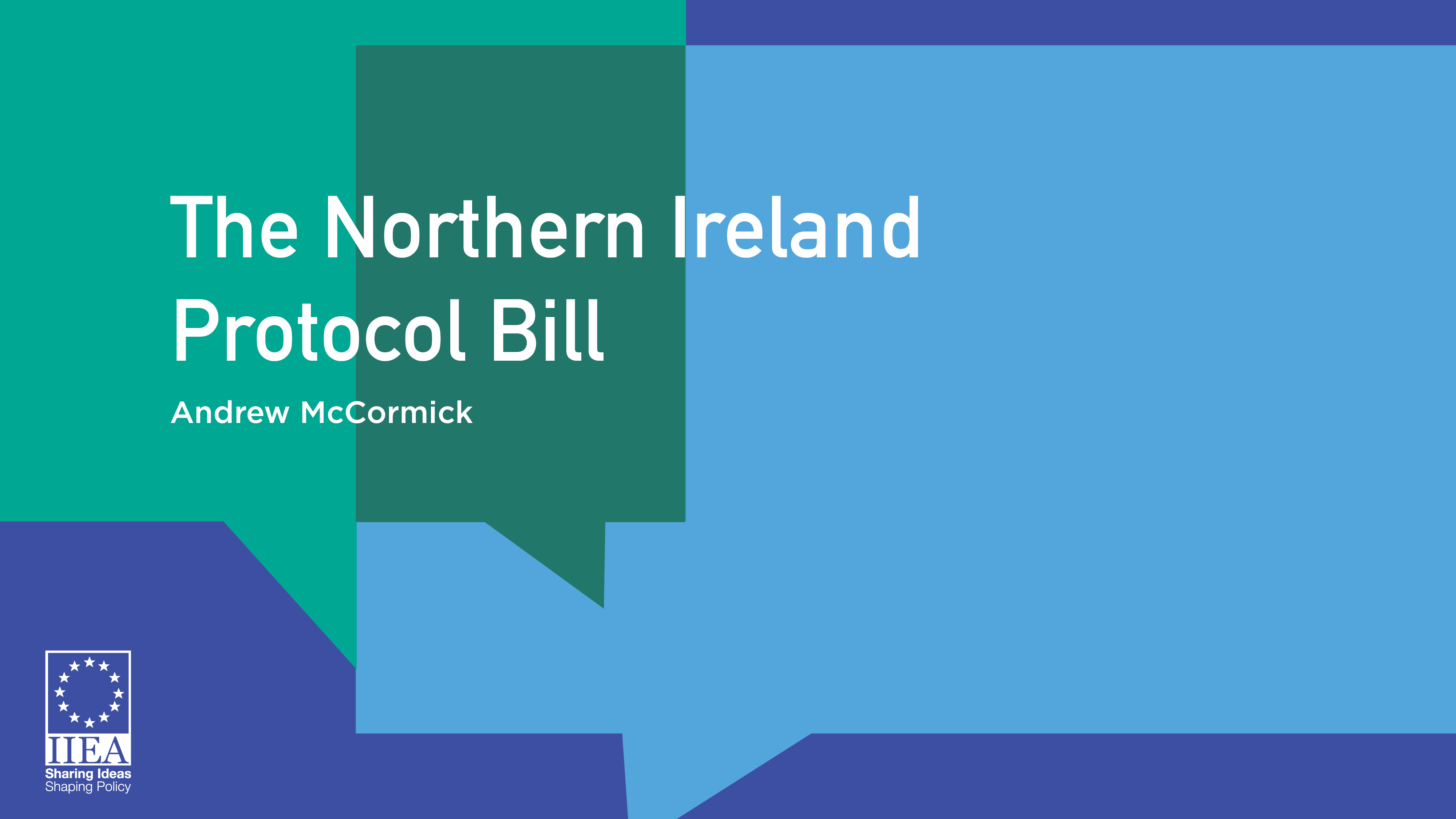The Northern Ireland Protocol Bill

In this paper for the IIEA, Andrew McCormick argues that at the heart of the issue of the Northern Ireland Protocol (NIP) Bill is the UK Government’s interpretation of the 1998 Belfast/Good Friday Agreement. McCormick notes that while “constructive ambiguity” is the most essential feature of the 1998 Agreement, this approach is much harder to apply to the issues arising from Brexit, which, taking the UK Government’s determination to break away from the EU Single Market and Customs Union as a given, requires a choice as to where checks and controls on the movement of goods should apply.
There is no perfect way to achieve complete protection over all aspects of the Belfast/Good Friday Agreement and of the EU Single Market and Customs Union simultaneously. The Protocol on Ireland/Northern Ireland was a compromise that followed lengthy and detailed negotiations which had not produced any better option. Finding a realistic and practical way ahead now depends on being able to identify the real problems that need to be addressed, taking account of the constitutional position of Northern Ireland, and an understanding of how the present real difficulties relating to this developed.
The NIP Bill is said to be essential because unionist opposition to the Protocol is preventing the operation of the institutions created under the Belfast/Good Friday Agreement. The author argues, however, that in claiming to address the issue of unionist disengagement in this way, the UK Government has adopted a one-sided analysis of the Belfast/Good Friday Agreement and that the “solution” it seeks to impose does not take account of the views of the majority of people in Northern Ireland who are not opposed to the Protocol.
The fundamental reality, according to Dr McCormick, is that Brexit has created a dilemma that was not foreseen in 1998 and which can only be resolved by a process of real engagement founded on the inclusive principles expressed in the 1998 Belfast/Good Friday Agreement. This means respecting all points of view in Northern Ireland as well as the principles that govern the UK and EU.
Dr McCormick notes that there is potential for a practical and reasonable way forward. For example, it should be possible to make the most of the concepts of green and red (or express) lanes to facilitate the movement of goods from Great Britain to Northern Ireland to address the practical problems of the Protocol. Any solution will involve some dislocation compared to the pre-Brexit status-quo ante, and it is vital that any further discussions or negotiations between the EU and UK Government regarding the UK’s relationship with the EU acknowledge this reality and seek out the best available compromise.
The key, as happened in the run up to the 1998 Agreement, is for courageous leaders to stand up and look beyond short-term and sectional interests to an agreement that can endure in the best interest of all the peoples on these islands.
The author, Dr Andrew McCormick was Director General of International Relations for the Northern Ireland Executive Office until his retirement in 2021. He was the Executive’s lead on Brexit, including between 2017 and 2020 when there were no ministers. As a result, he regularly attended ministerial meetings, including JMC(EN) and EUXT (P). Until May 2021, he represented the Executive at the Specialised Committee on the Protocol.
